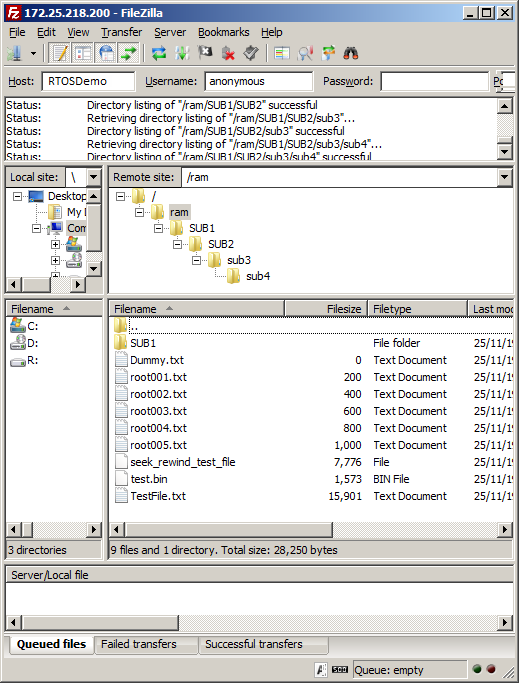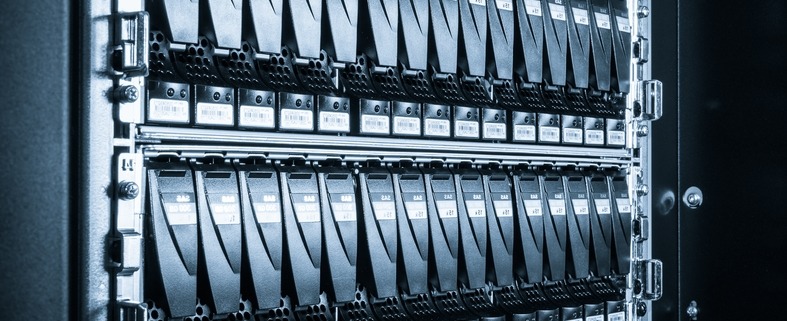

- #User ftp disk quota mybooklive how to#
- #User ftp disk quota mybooklive install#
- #User ftp disk quota mybooklive update#
- #User ftp disk quota mybooklive full#
- #User ftp disk quota mybooklive code#
This is imporatant when you want to use SSH in bash scripts, which is exactly how I’ve chose to do the backups. From now on, simply typing ssh securely logs you in with no password. ssh/id_rsa.pub | ssh 'cat > ssh password:Ī few simple commands and your done. Your public key has been saved in /home/NetCodger/.ssh/id_rsa.pub.Īb:cd:ef:12:34:ab:fe:dc:ba:98:76:54:7e:ee:4f:eb key's randomart image is: Your identification has been saved in /home/NetCodger/.ssh/id_rsa. It results in secure passwordless SSH logins from your Linux desktop to the My Book ssh-keygen -t rsaĮnter file in which to save the key (/home/NetCodger/.ssh/id_rsa):Įnter passphrase (empty for no passphrase): This is just a few simple commands executed on your Linux desktop. The next important step will be to enable passwordless SSH logins to the My Book Live. You can now login via ssh and change the root user’s password with the passwd root command. To do it, first log in to the web interface at After you’ve been authenticated, enter this case sensitive URL and tick the Enable SSH check box. Western Digital even provided a GUI screen that allows you to enable this service, but you have to enter the URL to it yourself. The first step is to enable SSH on the My Book Live.
#User ftp disk quota mybooklive full#
The script also rotates the backups and uses file system hard links to maintain numerous full backups that take only seconds to run each day while consuming minimal disk space.
#User ftp disk quota mybooklive how to#
So the following instructions are how to push rsync backups to the My Book Live via SSH. However, since the SSH configuration is maintained across firmware updates, rsync via SSH was a perfectly viable option. This eliminated the rsync daemon and Rsnapshot, etc. So, for this backup scenario, I did not want to modify the My Book Live. The Net Codger fully intended to mess with his My Book Live and would almost certainly need to restore it to factory defaults. When one updates the “firmware”(WD’s Debian install) on the My Book Live, it wipes out any user installed apps and most, though not all, configurations, returning it to a factory vanilla NAS.

#User ftp disk quota mybooklive install#
Or you could install Rsnaphot on it and have it act as a backup server, sucking the backup off of your Linux systems. Again, because of the My Book Live’s flexibility, you could install the rsync daemon on the My Book Live and have it receive your backups. But, most Linux admins prefer Rsync for backups these days. You could use tar and save the backups to a network share, right out of the box. Using the flexible My Book Live, there are a lot of ways that one could backup a Linux system. Because it took me more than just a few minutes, I thought I’d share my backup script, and the reasoning behind it, so that others can get going more quickly. I cannot see how to get out of this loop, maybe the apt package is broken and must be reinstalled manually, if so, how would I proceed to do it?Įdit: I dont know what's with the instant downvote, but if the question is obvious / poorly written / off-topic I'll be glad to improve it / take it elsewhere according to your comments.While putting a Western Digital My Book Live through its paces, I needed to backup a Linux system to the My Book Live which functions as a NAS.
#User ftp disk quota mybooklive code#
var/cache/apt/archives/apt_0.9.7.7_bĮ: Sub-process /usr/bin/dpkg returned an error code (1) Trying to overwrite '/etc/logrotate.d/apt', which is also in package wd-nas 02.50.00-96731Įrrors were encountered while processing: ĭpkg: error processing /var/cache/apt/archives/apt_0.9.7.7_b (-unpack): Preparing to replace apt 0.7.20.2+lenny1 (using. 19053 files and directories currently installed.) The following extra packages will be installed:Īptitude synaptic wajig dpkg-dev apt-doc python-aptġ upgraded, 0 newly installed, 0 to remove and 306 not upgraded.Īfter this operation, 2190kB disk space will be freed.Īpt-extracttemplates: /usr/lib/libz.so.1: version `ZLIB_1.2.3.3' not found (required by /usr/lib/powerpc-linux-gnu/libapt-pkg.so.4.12)ĭebconf: apt-extracttemplates failed: Bad file descriptorĭpkg: warning: files list file for package `libparted0' missing, assuming package has no files currently installed. Libapt-pkg4.12: Breaks: apt (> apt-get -f install The following packages have unmet dependencies: You might want to run `apt-get -f install' to correct these.
#User ftp disk quota mybooklive update#
Here are some outputs of upgrade commands I ran: > apt-get update The first thing I tried is to check for updates, but it seems that there are errors preventing apt from upgrading packages. I can SSH on the network drive which seems to run Debian: > cat /etc/issue

I have a WD My Book Live network drive ( ) on my LAN.


 0 kommentar(er)
0 kommentar(er)
